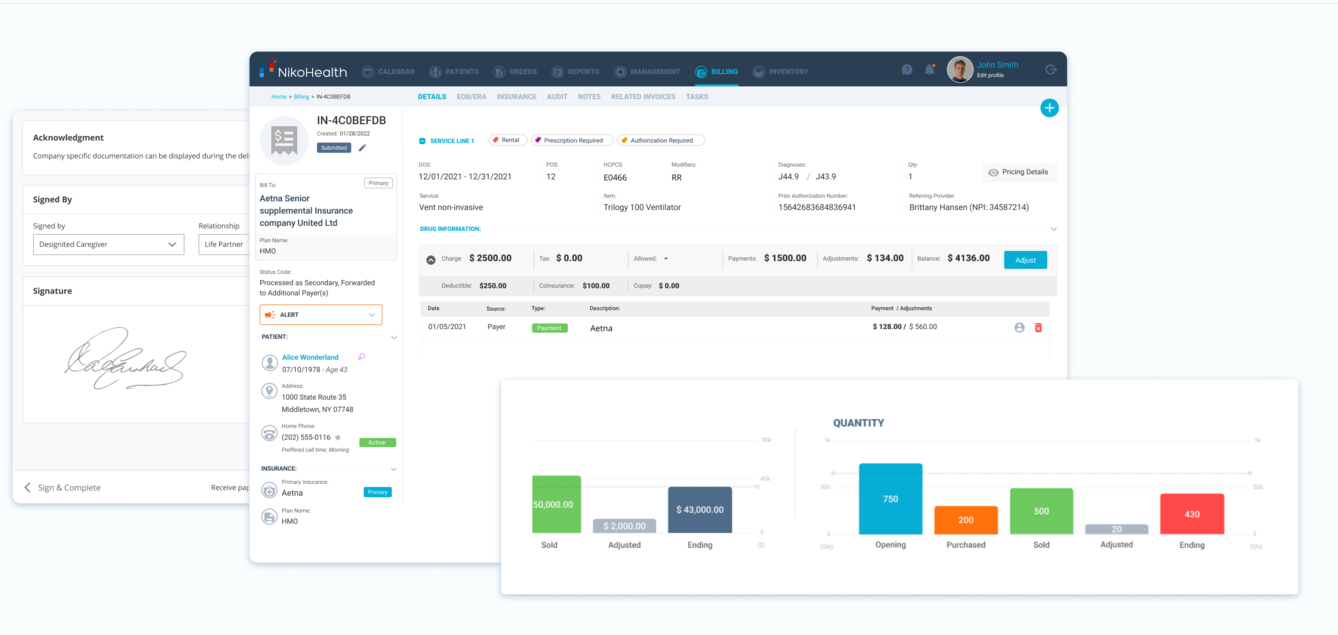In the fast-paced world of healthcare, managing the revenue cycle efficiently is paramount. Healthcare providers, from small clinics to large hospitals, face the daunting task of handling billing, claims, and payments. To address this challenge, RCM (Revenue Cycle Management) software emerges as a savior. This comprehensive guide will walk you through the intricacies of RCM software, offering a clear understanding of its significance and functionality.
RCM Software: Unraveling the Acronym
RCM software stands for Revenue Cycle Management software. This technology streamlines financial processes in healthcare organizations. From patient registration and insurance verification to claims processing and payment collection, RCM software covers it all.
The Advantages of RCM Software
Boosting Efficiency
RCM software automates many manual tasks, significantly reducing administrative workload. This allows healthcare professionals to focus on patient care.
Maximizing Revenue
By minimizing billing errors and optimizing claim submission, RCM software ensures healthcare providers receive the maximum reimbursements for their services.
Regulatory Compliance
RCM software is designed to stay current with healthcare regulations. This helps healthcare organizations remain compliant and avoid costly penalties.
The Inner Workings of RCM Software
RCM software operates through a series of stages:
Patient Registration
At the outset, patient information is recorded, including demographics and insurance details. RCM software verifies this information, ensuring accuracy.
Insurance Verification
This step confirms the patient's insurance coverage and eligibility for specific services.
Claims Processing
RCM software handles the creation and submission of insurance claims, optimizing the chances of quick and full reimbursement.
Payment Collection
After claims are approved, RCM software aids in efficient payment collection, reducing outstanding balances.
The Impact of RCM Software on Healthcare
Healthcare providers that embrace RCM software experience a host of benefits:
- Faster payments
- Reduced claim denials
- Enhanced patient experience
- Better financial transparency
- Improved revenue
The Role of Technology in RCM Software
Artificial Intelligence Integration
Leading RCM software solutions incorporate AI to analyze data trends, predict payment outcomes, and improve billing accuracy.
Cloud-Based Systems
Cloud-based RCM software allows for real-time access and updates, making it an ideal choice for remote teams and telemedicine.
Mobile Accessibility
Access to RCM software through mobile apps facilitates on-the-go management for healthcare providers.
RCM Software FAQs
Q: What is the primary goal of RCM software? A: RCM software aims to optimize the revenue cycle, ensuring healthcare organizations receive timely and accurate reimbursements.
Q: Is RCM software suitable for small clinics? A: Absolutely! RCM software is adaptable and can benefit healthcare providers of all sizes.
Q: How can RCM software reduce claim denials? A: By thoroughly verifying insurance information and ensuring claim accuracy, RCM software minimizes denials.
Q: Are there any potential downsides to RCM software? A: While rare, some challenges include the initial implementation process and the cost of software adoption.
Q: Can RCM software work seamlessly with other healthcare systems? A: Yes, modern RCM software is designed to integrate smoothly with EHR (Electronic Health Records) and other healthcare IT systems.
Q: Is RCM software a one-size-fits-all solution? A: No, RCM software can be tailored to suit the specific needs and workflows of different healthcare organizations.
Conclusion
RCM software is a game-changer in the healthcare industry. Its ability to streamline financial operations, maximize revenue, and improve overall efficiency is a testament to its importance. As technology advances, RCM software continues to evolve, providing even more robust solutions for healthcare organizations. Embrace RCM software, and unlock the potential for better financial health in your healthcare practice.

